Event for horse sport leaders considers the question ‘What drives trust that sport horses live good lives?
Influential members of the horse world discuss public perceptions of whether sport horses live good lives.
Posted on 06/06/2025
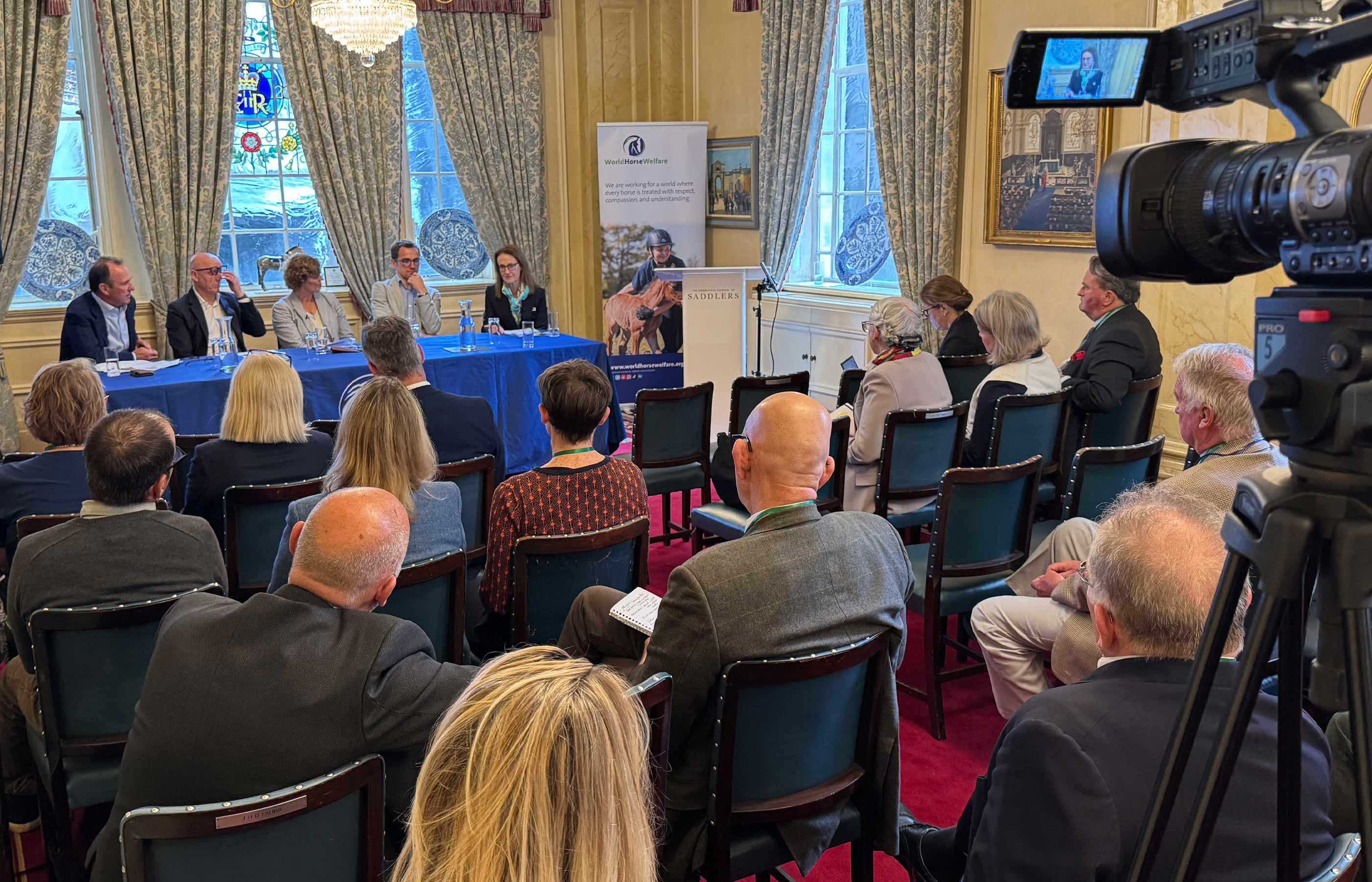
The public have good instincts on what horses need to have good lives, and equestrians need to do much more to improve public confidence that sport can provide this according to World Horse Welfare’s latest YouGov survey to temperature check public opinion around the involvement of horses in sport
On Tuesday 3 June, at an event in London and online, the findings of this year’s survey were presented to an audience of over 120 horse sport leaders and the media, and discussed by a panel of influential members of the horse world. For the fourth iteration of the annual event, the panel was joined by a public relations expert who shared his thoughts on the current state of play with regards to horse sport’s reputation in the eyes of the public.
Roly Owers, Chief Executive of World Horse Welfare, set the keynote by picking up on the differences in views between the public and those in the horse world that were revealed in the You Gov poll, Roly said:
“While horse people seem more confident in the quality of life of sport horses, they seem to have a different slant on what actually matters to a horse.
“We asked people what they think is important to a sport horse, and the public generally recognised that being free of pain or discomfort, having a suitable diet and healthcare, resting after competitions and having social contact with other horses was important.
“However, more horse people were likely to think that it was important to the horse to be ridden, to go to competitions and to win them – which feels a bit like anthropomorphism in action.”
Reflecting on the public’s opinions around how horses are trained, Roly said:
“The public again appeared to have good instincts about the importance of rewards, the use of a soft voice and light pressure on the reins or sides. But they do not seem to like use of the whip, even for light tapping.
“Horse people were more likely to understand the use of light pressure to train a horse, but worryingly, a notable proportion were also more complacent about using a loud voice, using a whip with force and using fear or pain to train a horse. These practices are of course unethical and rightly not supported by the public.”
A panel discussion explored the survey results further and asked for their opinions on what might increase the public’s trust that sport horses live good lives, alongside the top three survey answers which were:
- Allowing unannounced inspections of equestrian training facilities
- Making welfare education mandatory for all those who work with sport horses and
- Publishing the results of welfare assessments.
Chaired by writer and editor Lucy Higginson, the panel featured equestrian professionals Dickie Waygood, Eventing Performance Director at British Equestrian; Brad Hill, an equine vet at Nottingham Vet School, and Jenny Hall, Chair of the FEI’s Veterinary Committee and their new Independent Welfare Advisory Group. They were joined by communications consultant David Yelland, founder of Kitchen Table Partners, former editor of The Sun and presenter of the podcast ‘When it Hits the Fan’.
Fielding the first question, Brad Hall acknowledged that those involved in horse sport are on a journey and that he knows of riders who are adopting a positive welfare approach and implementing the 3Fs (Friends, Forage and Freedom). He also acknowledged that measuring positive welfare posed a challenge and referenced work that is being done to develop a positive assessment tool that could be used to measure positive emotions in horses, as well as the work he is doing around using cameras and AI to identify positive behaviours.
Alongside this, Brad felt that understanding how horses learn in the development of ethical training methods was fundamental to ensuring good welfare. He said: “There is evidence to suggest that horses get a dopamine spike from learning so there is published data on that. Horses like learning, so if we can speak their language and get back to that, then not only can we justify what we are doing but we can actually say that there is a sense of enjoyment from the horse’s point of view. I think that’s where we need to be moving towards and I do believe that we are going in that direction.”
Jenny Hall pointed out that recent incidents that have called into question the welfare of horses in horse sport have happened outside of competition and in training. Citing the FEI’s Equine Welfare Strategy Action Plan, She explained that it’s not that the information isn’t there but that it needs to be more widely articulated: “I think, as is reflected in the survey results, the high-profile welfare cases last year for the FEI were all outside of competition. So, I think this is why we feel that we have to set out and make it clear what ethical training methods are. Because I think an awful lot of people, that’s what they do every day, but it needs to be more widely articulated so it is clear what the expectations are.”
Noting the public’s support for mandatory welfare education, the panel also discussed the possible use of licences, examinations and certification around horse ownership and training – though there was a recognition of the challenges these measures presented when it came to resourcing and implementation. Despite this, both Brad and Dickie gave a unanimous ‘yes’ to a question about whether coaching should be legislated in the same way the farriery profession is.
Dickie Waygood raised the point that coaches can play an instrumental role in improving equine welfare knowledge and dissemination of best practice given their status as ‘the biggest influencers in the elite sport’
Addressing the room, he said: “I don’t feel there’s probably enough good, shared practice. Elite athletes, and that’s in any disciplines, not just equestrian, can become quite obsessed with what they are doing. And I think it’s about the education and sharing good practice. Unless we take control of the narrative going forward, things can be taken out of our hands.”
He added that: “Coaches and elite athletes are like sponges, they want knowledge” and felt that more effort should go into incorporating ethical training practices into their CPD and sharing best practice in a way that is accessible.
The suggestion of opening up competition yards to the public and unannounced inspections were also considered. Despite this being one of the top three measures chosen by the public to increase trust, David Yelland highlighted that only around half the UK public felt that these were a good thing and warned of the dangers of opening up on a controversy.
David explained the correct approach, saying: “Being ahead of things is the right way, they call it PR hygiene. If your PR is leading your agenda It is never a good thing. In other words, don’t just do things for PR reasons.
“So, if you were to announce the end of whipping, for example, that might lead on the 10 O’clock news or be the front page of The Times or Daily Mail, but then the next day there would be a huge amount of focus on what next on areas that you don’t necessarily want a focus to be. So doing things gradually without announcements, without a fuss, is the best way.”
Wrapping up the event, Roly highlighted that education and ethics were two key themes around which steps can be taken by horse sport:
“Education has been talked about a lot today, quite rightly too, but it is so important to actually walk the talk. There are some within our sector that ‘talk the talk’ and don’t actually implement much so I think it is so important that we have meaningful substance to what we are doing … as David said earlier, the best PR in the world is to do the right thing
“Education has come up a lot and ethics has certainly come up a huge amount. The ethics of whether we should be involving horses in sport at all, the ethics of how we are managing and training our horses, and the ethics of how we are actually ensuring that the lifetime of these horses that we involve in sport is really cared for.”
The full 1hr and 15-minute event is available to watch online.
Topics
Related News
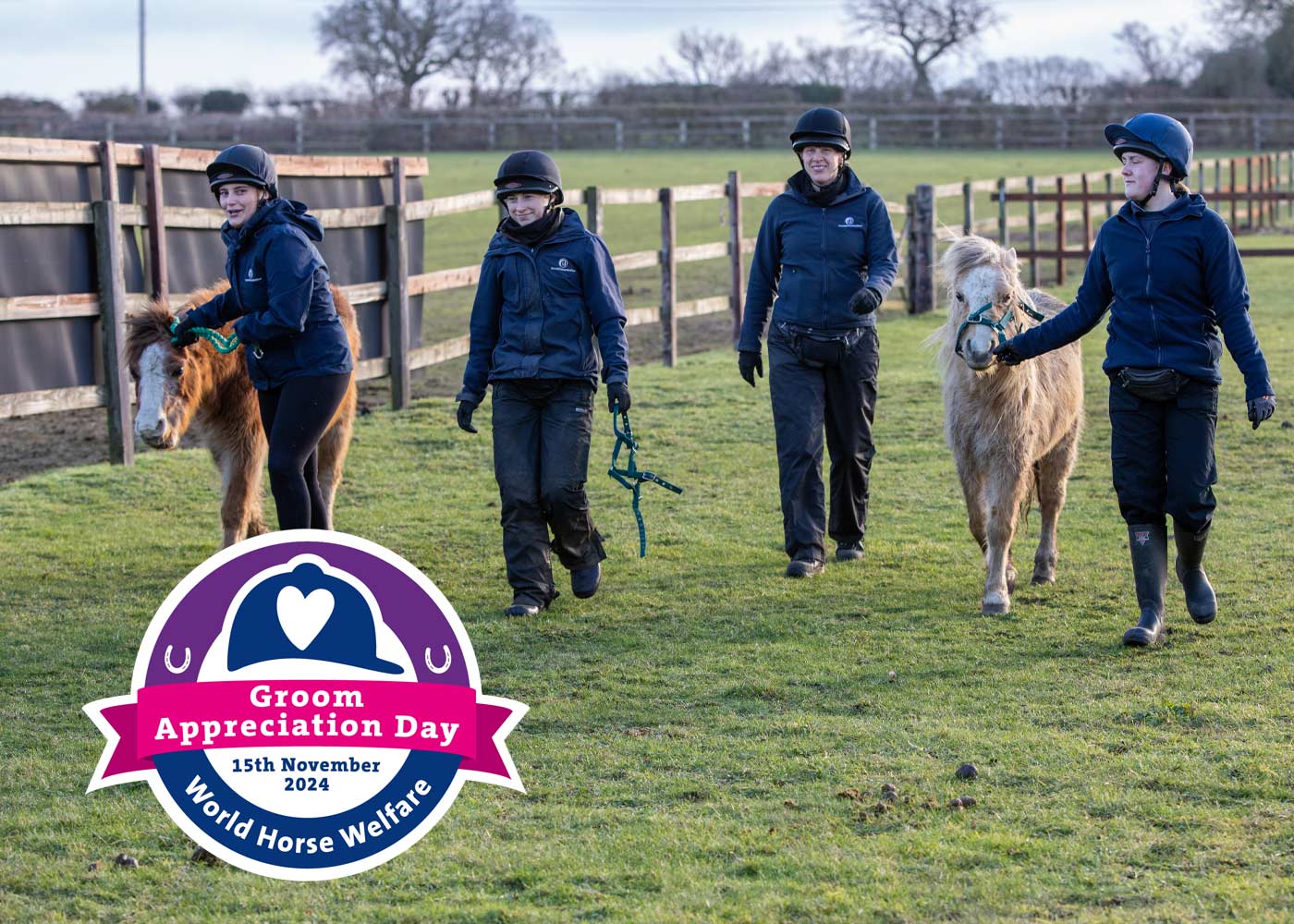
Celebrating our often-unsung heroes who work 365 days a year
We launch World Horse Welfare Groom Appreciation Day to shine a spotlight on the invaluable and inspiring work of our grooms.
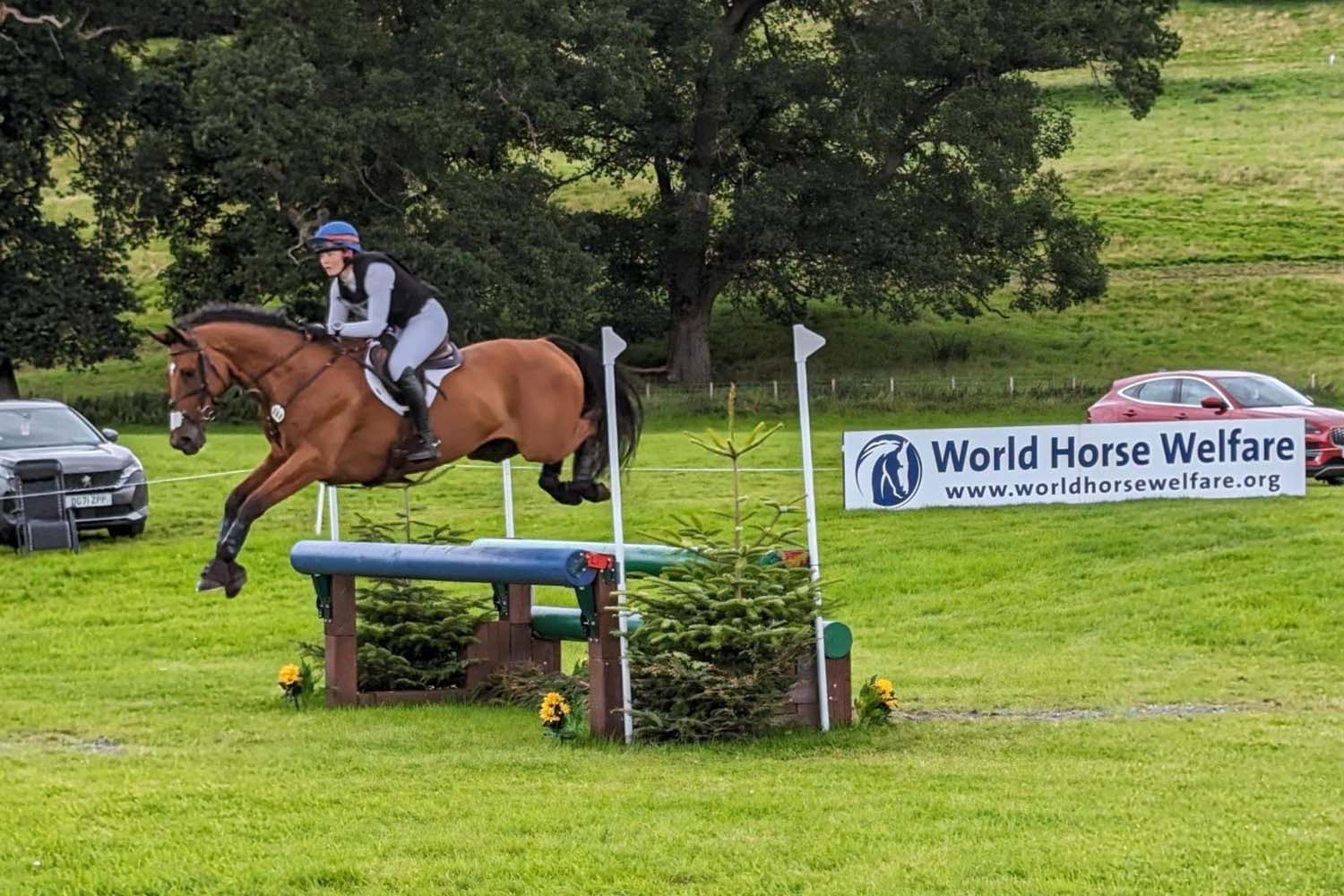
Recommended Blog Posts
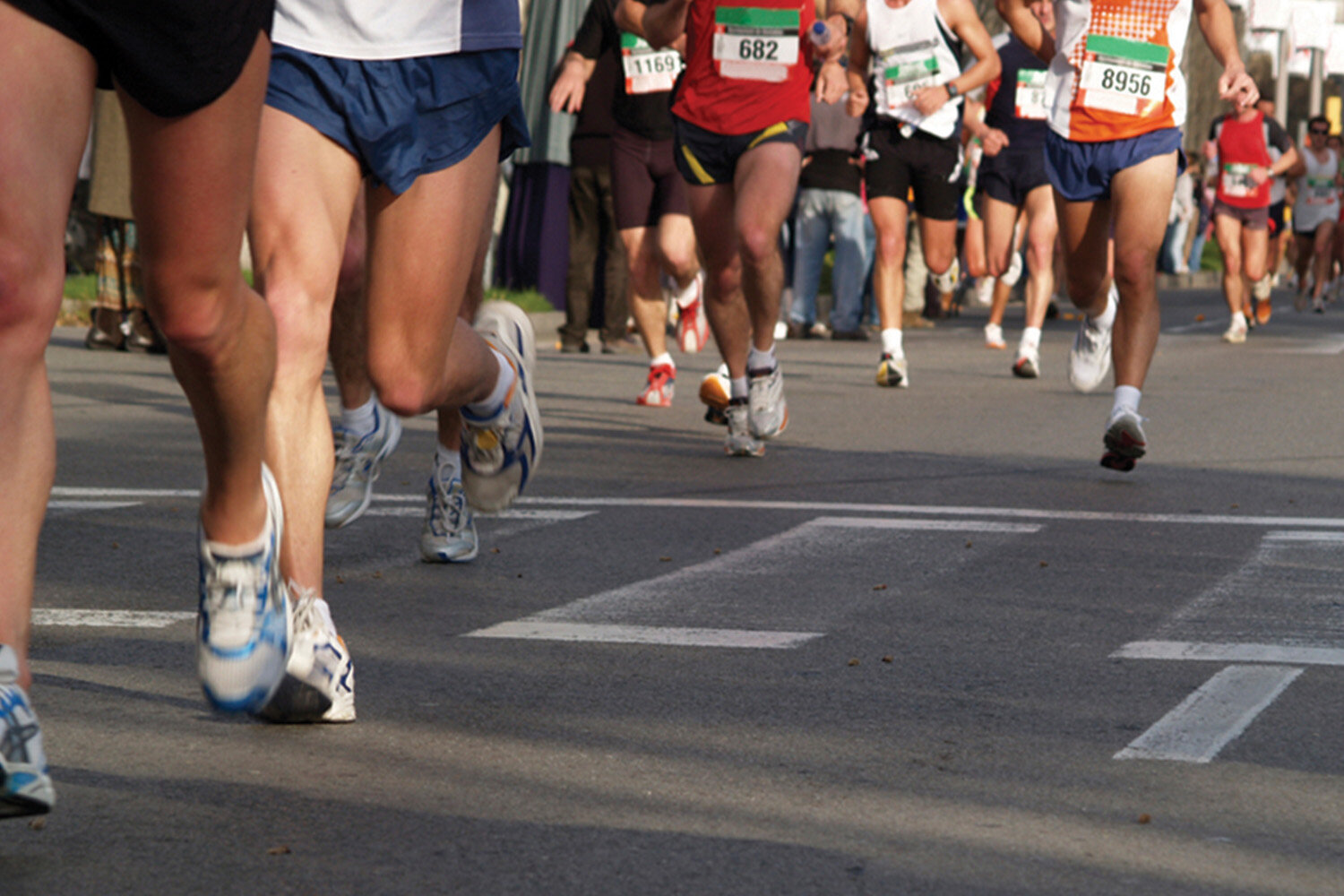
Our London Marathon runners 2025
We catch up with the six runners taking on this epic event for our charity to find out how their training is going.
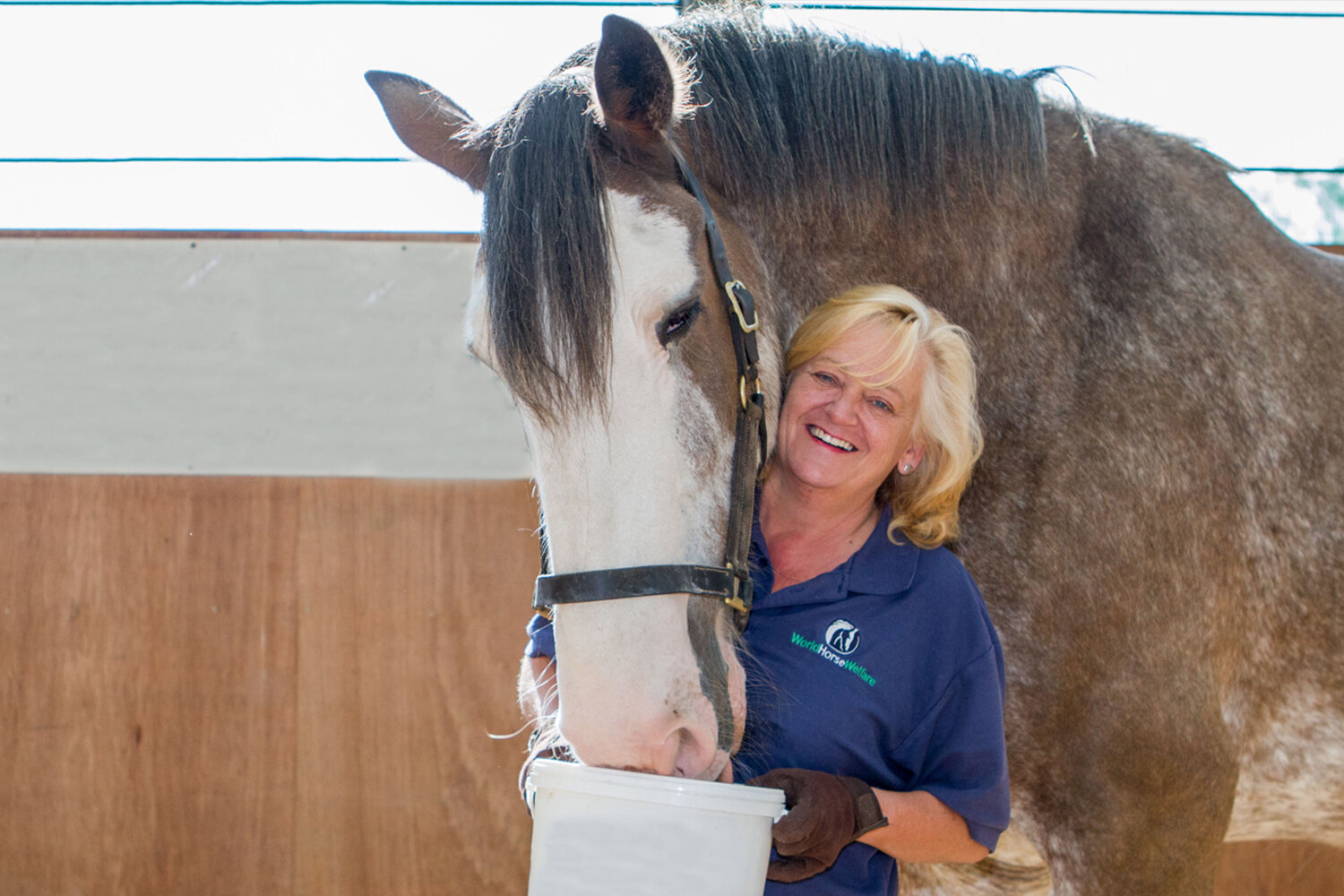
We find out the latest news on Equine Grass Sickness
Belwade Farm Rescue and Rehoming Centre Manager Eileen Gillen shares insights from a conference on the complex disease.
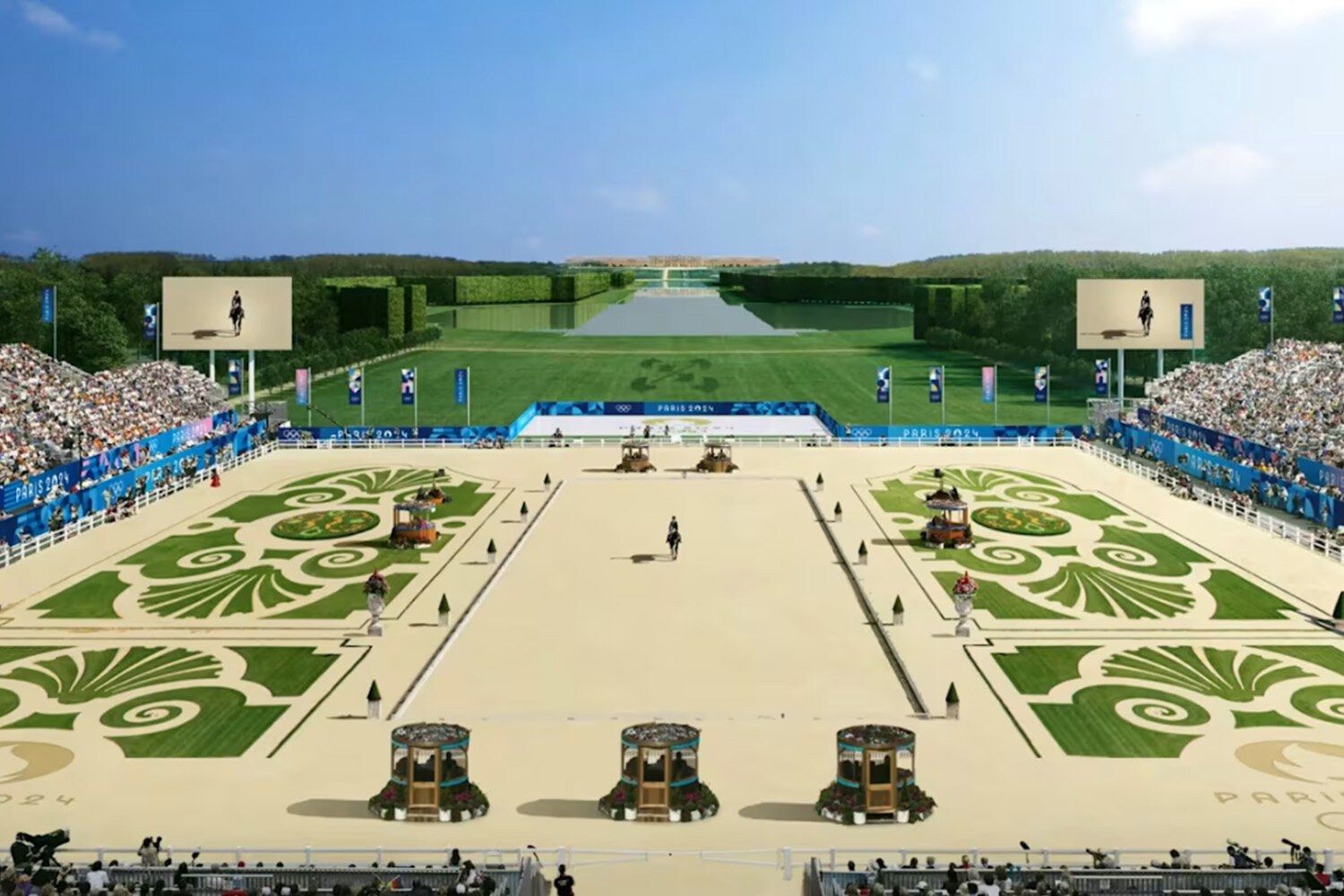
Post Olympic reflections on equestrian sport
We all have the power and the responsibility to move towards more ethical and evidence-based equestrianism.
Enjoy reading stories like this?
Join over 65,000 other horse lovers and sign up for our email newsletter

Join over 65,000 other horse lovers and sign up for our email newsletter
Sign me up now